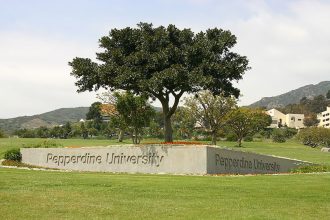• One year of unfulfilled pledges in education sector triggers more challenges
From Fred Ezeh, Abuja
Thas been a journey of mixed experiences for stakeholders in the education sector in the last one year. President Bola Tinubu during electioneering promised to “fix” the sector.
He pledged improved funding, innovations, better remunerations, working conditions that could attract local and international investments and attract best brains in the education sector, particularly in teaching.
That might be responsible for the increased budgetary allocation to the sector in 2024 fiscal year, with N1.54 trillion allocated to the Federal Ministry of Education and its agencies, including N50 billion for the Students Loan Scheme. This is higher than the N1.08 trillion the ministry received in 2023.
The sector witnessed some ups and downs within the period. For some observers, it was a period of policy formulation, important in giving guide to actions of government and stakeholders for a better education sector for Nigeria.
Tinubu few weeks into office, announced the appointment of Prof. Tahir Mamman and Dr. Tanko Yusuf Sununu, as Minister and Minister of State for Education, respectively.
The ministers were given the task of reviving the education, which witnessed some backward trend in the eight years of President Muhammadu Buhari, with Mallam Adamu as Minister of Education.
The appointment of the ministers sent some hopes to stakeholders considering the fact that the minister, until his appointment, was vice chancellor in a private university.
Sadly, mixed feelings set in few months into the administration. While some are impressed with the steps taken so far by the minister, others said they are disappointed with the slow pace of actions and lack of realistic directions that would herald the expected transformations in the sector.
Before the ministers came
Unarguably, the sector was at its lowest when the ministers were appointed. This was, perhaps, as a result of the poor achievements of Buhari’s administration. Adamu brought “less development” to the sector. This did not surprise stakeholders and some other Nigerians who had queried his competence and capacity when he was appointed in 2015.
For some reasons, he could not achieve most of the targets he set for himself, neither could he achieve the ones set by stakeholders. During his period, schools became more vulnerable to attacks; school children were abducted by armed bandits; number of out-of-school children grew, quality of education dropped significantly, protracted ASUU, ASUP, COEASU strikes were witnessed among other challenges.
However, the perceived failure might be what triggered the excitement when Mamman and Sununu, were appointed. Expectations were that in few months in office, some transformations would have been noticed. Sadly, that never happened.
The journey so far
Notwithstanding the perceived slow start, the management of the education sector has initiated some steps that might herald some expected changes in no distant time.
The ministry is implementing a new roadmap to tackle out-of-school children, improve access to education, strengthen quality, provide better opportunities, drive ICT implementation and several other targets.
Few weeks ago, the minister confirmed that the initiatives recommended by the roadmap resulted in the return of over two million out-of-school children to school. He said they have also succeeded in returning the school-feeding programme hitherto domiciled at the Ministry of Humanitarian Affairs, to the education ministry.
But key major gains of the ministry seems to be the implementation of the Student Loan Scheme (SLS), which kicked-off on May 24, 2024, with students from federal tertiary institutions.
Another achievement is the industrial peace and harmony in the tertiary education system even though the peace is fragile. Academic calendar of the universities have not been disrupted as a result of strike by university unions.
But the recent strike notice by the Academic Staff Union of Universities (ASUU), is an indication that the industrial peace can be disrupted anytime soon if the demands of ASUU are not met
The minister didn’t not also fail the public in the action taken following the outrage that accompanied a report that revealed increasing patronage of “fake universities” in neighbouring countries. Report of the investigative committee on degree mills revealed that some persons within and outside the civil service are working with fake certificates acquired from unregistered local and international institutions.
It recommended that National Universities Commission (NUC) pay more attention to institutions offering part-time or sandwich programmes to avoid a repeat of 2017 saga of centres offering unaccredited courses.
Challenges
Despite the steps taken so far, the education sector is facing numerous challenges that need collective efforts to surmount considering the fact the education is in the concurrent legislative list. These challenges include limited access to quality education, particularly in rural areas; inadequate funding leading to lack of infrastructure, resources and qualified teachers; concerns about quality of education including curriculum relevance and teaching standards; disparities in education opportunities particularly for marginalised groups such as girls and children with disabilities; and brain drain, which involves mass emigration of skilled professionals including teachers due to economic and political factors.
However, state governments have a critical role to play in fixing the challenges. For instance, Adamu said he could not tackle the issue of out-of-school children because of poor commitment from state governments as regards the basic education:
“Most of our policies at the federal level successfully pulled children out of the street back to school, but evidently, the actions of state governments pushed them back to the street.
“In 2015, I proposed in my heart to tackle myriad of issue confronting the education system particularly the issue of out-of-school children. But unfortunately, I could not achieve the task. For seven years, I was unable to tackle the issue of out-of-school children and several other challenges in the education sector due to poor support from the state governments.
“However, there are so many factors that contributed to that failure. But the key one, probably, has to do with education commissioners in the states.”
Stakeholders’ reactions
Lucky Emonefe, National President, National Association of Nigerian Students (NANS), said his colleagues are particularly impressed with the minister’s quick decision on fake certificates recently reported in the media: “The ministry was quick in taking urgent action in that matter and we are happy with that. Such action has helped to protect the sanctity and integrity of our degree certificates.
“Also, the minister has involved the student’s body in the periodic engagement of stakeholders in the education sector. We have participated in the meeting once or twice, and we are happy for that opportunity to make input in the education sector.
“Nevertheless, we realised that interest in education courses are going down everyday. We raised the alarm for relevant stakeholders to act. We are happy that they took the necessary actions.
“The ministry said it’s working on packages that would encourage more people to develop interest in the teaching profession. Incentives are being provided for those that want to study education courses, as well as those involved in teaching practice.
“We also commended the ministry’s action against the arbitrary increase in school fees by vice chancellors. We are optimistic that the recently launched student loan scheme will ameliorate the hardship being faced by indigent students who might have lost the opportunity to acquire university education.
“We equally rose against the policy being considered by the ministry, that 18 years should be pegged as entry age into tertiary institutions.”
Chinonso Obasi, National President, Nigeria Youth Union (NYU), said: “It’s convincing to say that the status quo in the education system is still the same.
“Unhealthy halls of residence in public institutions, sex for grades is still rampant, poor emoluments for lecturers, extortion and obnoxious increase of charges in tertiary institutions are still the order of the day.”
The former president of National Association of Nigerian Students (NANS), asked the president to, as a matter of urgency, invoke an executive order to compel governors to unconditionally provide the counterpart funding to access the UBEC funds lying fallow:
“The promise made by the president through the Minister of Education to grant financial autonomy to Federal Government institutions and the approval of the Nigerian Students’ Loan are also indicators of the president’s willingness to move the educational sector forward.
“But beyond this, the president should declare an intentional state of emergency in the education sector to address its decaying state.”
Many promises the administration made in 2023 are still on the drawing board. The roadmap launched is struggling to produce the expected results. The NUT, ASUU, ASUP, SSANU, NASU and other unions are waiting for their demands to be implemented while lack of funds due to poor budgetary allocation has worsened the situation as the sector struggles to meet the demands of stakeholders.







